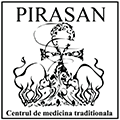An inflammation of the urinary bladder, one that women are most prone to, cystitis may also involve the urethra. It develops both acute and chronic or recurrent forms (with frequent relapses, although the applied treatments have temporary effects).
As symptomatology, its clinical picture is defined by the following:
- dysuria (painful urination)
- frequent mictions (need to urinate very often)
- pains in the lower abdominal area and in the lumbar one
- stinging and/or painful mictions
- thick urine
- involuntary discharges of urine during day and/or night incontinency
In men, cystitis develops lighter forms and its symptoms resemble those of prostatitis.
The continuous need to urinate and the pains/stinging accompanying cystitis affect the patient’s professional efficiency and alter his mood, leading to a decrease in his work volume and to overall indisposition until the symptoms are ameliorated. In acute forms, the symptomatology forces bed rest for short periods of time.
Usually, the infection is caused by bacteria located in the intestinal area (e.g. Esterichia Coli) or by fungi. It is biased by a precarious intimate hygiene, decreased immunity of the genital apparatus, hormonal disorders, diabetes, exposure to very low temperatures, frequent intercourse and lack of an hygienic behavior after intercourse, unhealthy underwear. As far as women are concerned, in most cases the infection occurs following intercourse, because the bacteria that are already present in vagina or in the lower urethral area will move towards the urinary bladder. Where, in addition to that, the immunity of the urogenital apparatus is low, too, the respective bacteria will cause cystitis.
Failing to treat it, especially where there are recurrent cystites, the infection may also affect the kidneys, leading to severe renal affections in time, such as pyelonephritis or chronic renal insufficiency.
As measures of cystitis prevention, the following may be mentioned:
- after going to the rest-room, each person should wipe from front to back to avoid carrying the bacteria from the anal to the urinary area; it is preferably, though, to wash the intimate area with water and soap every time after using the toilet.
- comfortable underwear made of natural fibers, to prevent rubbing the area into inflammation
- intimate toilet before and after each intercourse
- an adequate intake of liquid (at least 2 liters of water daily)
Treatment
Restoring the immunity of the genito-urinary apparatus (kidneys, urinary bladder, prostate, ovaries and uterus) is one of the main objectives in the treatment of cystitis. As most of the people suffering from recurrent cystitis also suffer from deteriorations of the renal functions or from minor lung disorders, the lung immunity must also be improved, so that there should be an immune barrier both at genito-urinary level and at lung level. In order to eliminate the infectious agents in the genito-urinary area, blood circulation and local metabolism will be intensified, processes that will detoxify the area and will eliminate the deposits of dead cells (elements that bias the infectious process).

